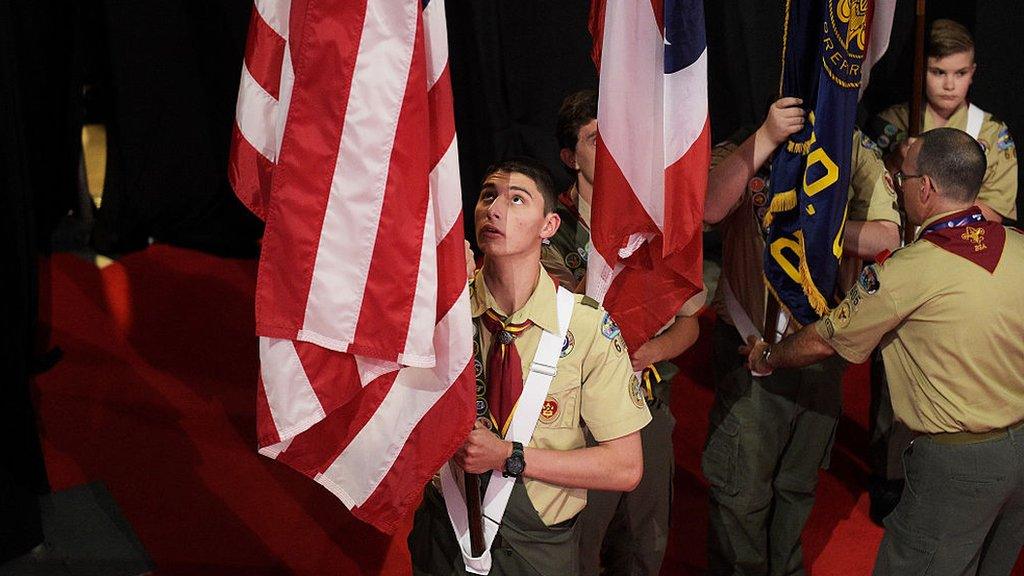US Boy Scouts revoke badges from boy with Down's syndrome
- Published
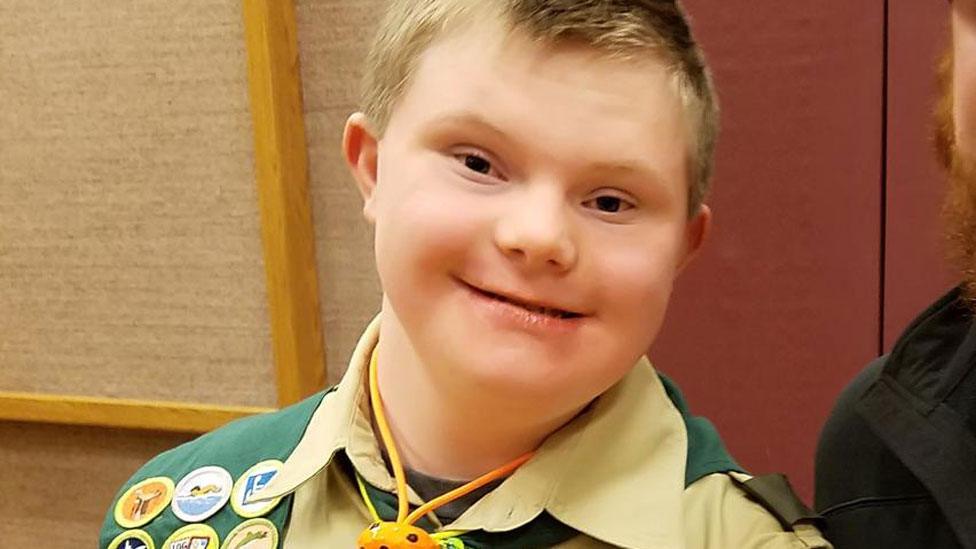
Logan Blythe had been a Boy Scout for four years
A US father is suing after his son, who has Down's syndrome and autism, was prevented from participating in the Boy Scouts' highest programme.
The local Scout group had previously allowed 15-year-old Logan Blythe to perform modified tasks to gain badges,, external his father told the Salt Lake Tribune.
But the Boy Scouts of America say that Logan did not fulfil badge requirements and could not progress.
Logan's father, Chad Blythe, is suing the Scouts for a nominal $1.
'Discrimination'
Logan Blythe had been a Boy Scout for four years and achieved more than 20 badges when his local chapter, the Utah National Parks Council, approved his application to join the Alternative Eagle Scout Programme, external in November 2017.
The programme aims to accommodate young people with physical or mental disabilities by allowing them to carry out alternative tasks where they are unable to achieve the standard badge.
But the following day, the family received a text message saying that the national body of the Boys Scouts of America had decided that the allowances previously made for Logan's disabilities meant he did not fulfil the programme's criteria.
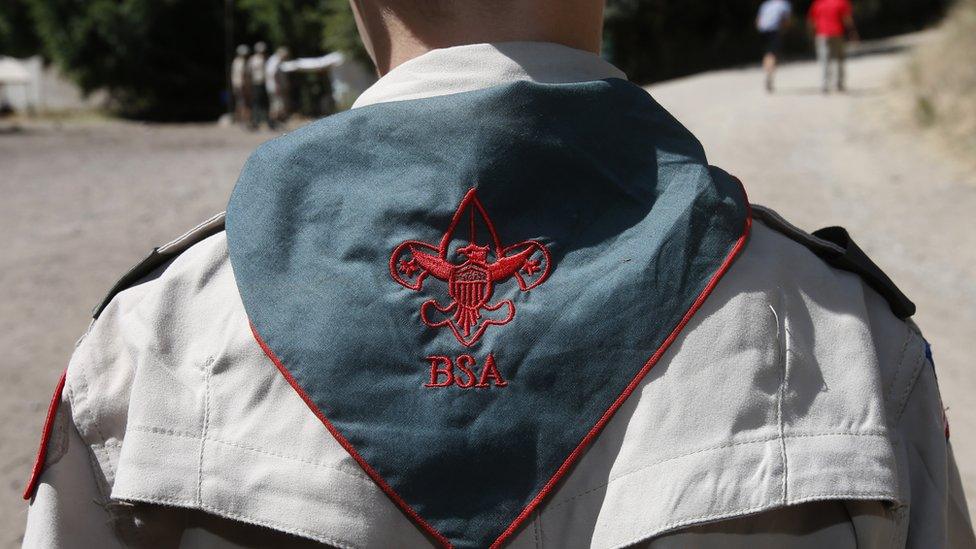
When the family enquired if there were alternatives to the Eagle programme, they were told that participants "must do the requirements as written, including leadership responsibilities", external, local station KSL-TV reported.
Logan's father, Chad Blythe, has said that the decision effectively voided all of his son's badges.
In a video uploaded to YouTube, Mr Blythe described the case as "the very definition of discrimination", external.
The Utah National Parks Council said that while they had supported Logan and his family, the decision belonged to the Boys Scouts of America's national body.
Mr Blythe told KSL-TV that he hoped the lawsuit against both the local and national Boy Scouts bodies would bring about change.
"I cannot support an organisation that does not support my son… or support anyone who doesn't support those with mental disabilities, it's wrong," he said.

You may also be interested in:
- Published17 March 2018
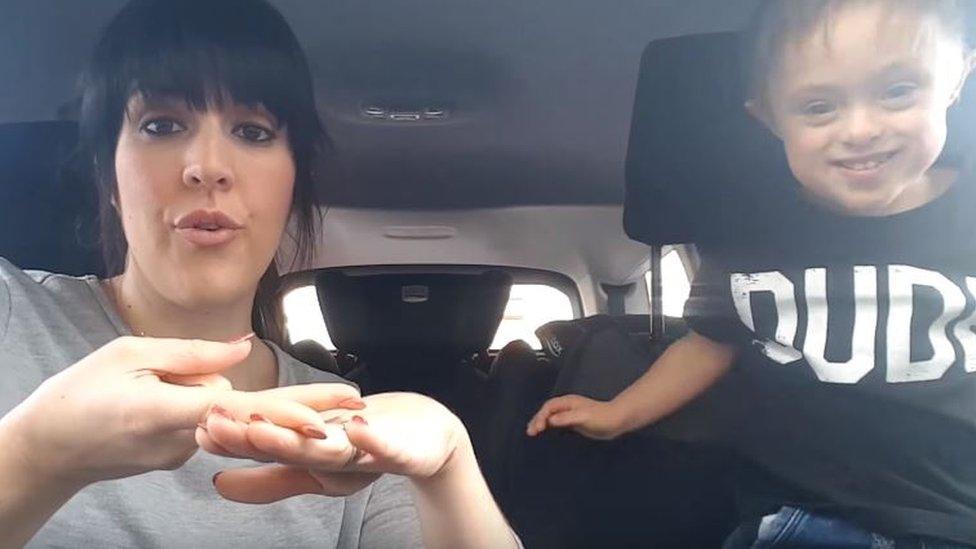
- Published13 January 2018
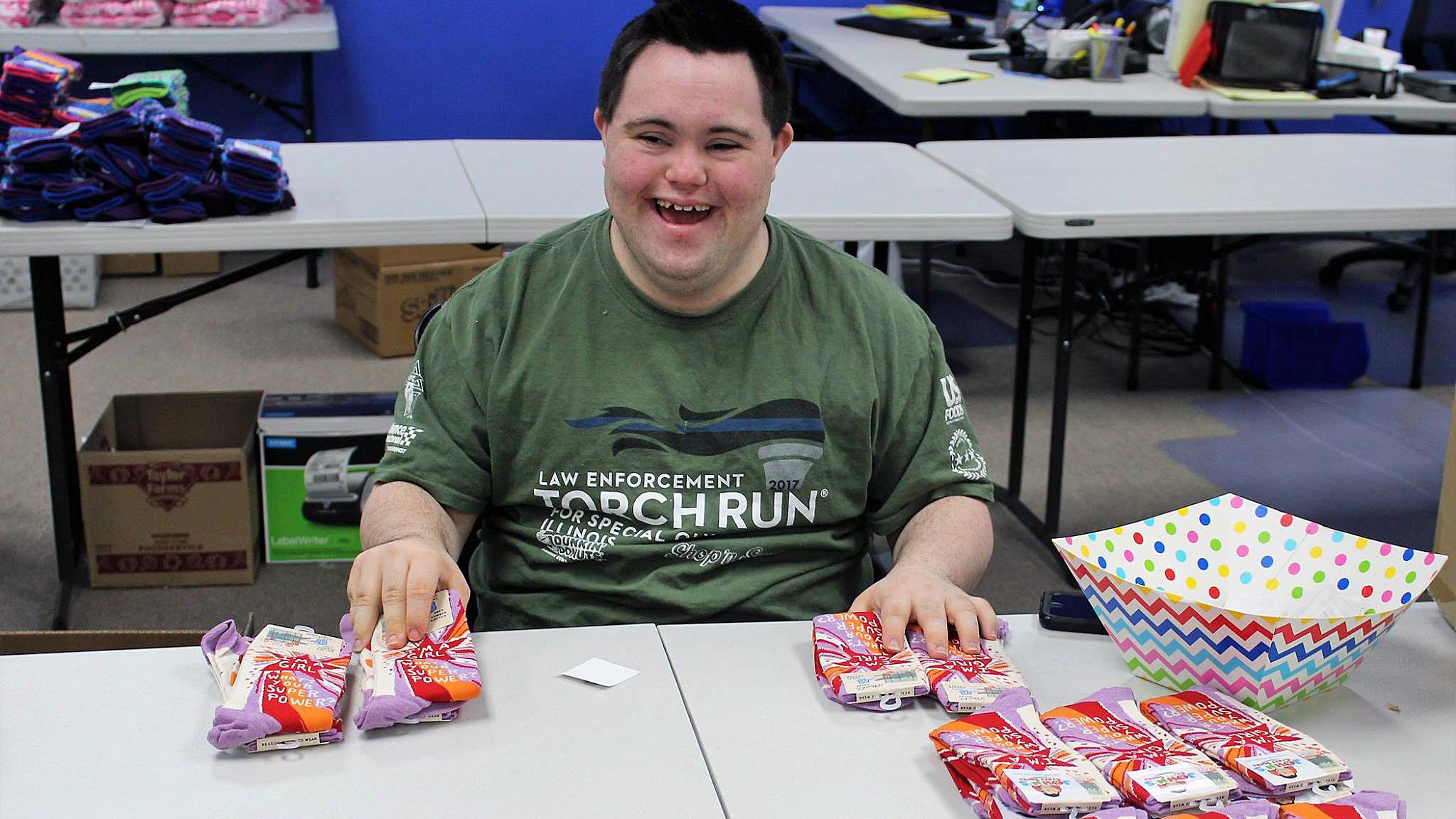
- Published11 October 2017
